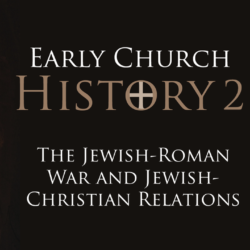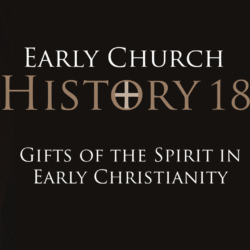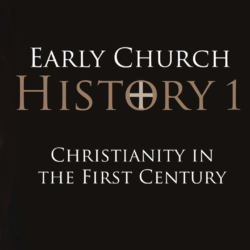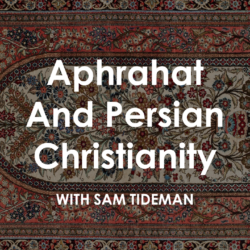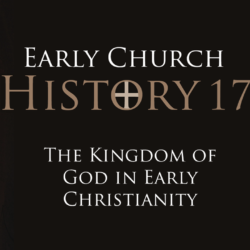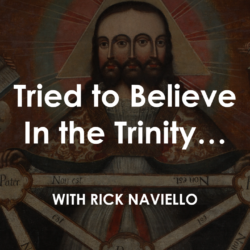This is part 3 of the Early Church History class.
Today we begin to look at the second century. We’ll start by considering Jewish Christian movements, including the Nazarenes and the Ebionites. Next we’ll shift gears and explore the cultural pressure of asceticism and how it began infiltrating Christianity. We’ll briefly survey the influence of Marcion and his followers before sketching out the various christologies of second century. This episode is a hodgepodge of unrelated topics that overlap in the same time period. This will serve as a good introduction before we get into other topics in the second century.
Listen to this episode on Spotify or Apple Podcasts
—— Links ——
- More Restitutio resources on history
- More classes here
- Support Restitutio by donating here
- Join our Restitutio Facebook Group and follow Sean Finnegan on Twitter @RestitutioSF
- Leave a voice message via SpeakPipe with questions or comments and we may play them out on the air
- Intro music: Good Vibes by MBB Attribution-ShareAlike 3.0 Unported (CC BY-SA 3.0) Free Download / Stream: Music promoted by Audio Library.
- Who is Sean Finnegan? Read his bio here
—— Notes ——
Outline
- Jewish Christianity
- Asceticism
- Marcion
- Gnostics
- Christologies in the 2nd c.
Jewish Christianity
Patricia Crone: “Originally, the bastion of law-observing Christianity was the Jerusalem church, the undisputed center of Christianity until the first Jewish war with Rome (AD 66–70). When this war broke out, the Jerusalem Christians reportedly fled to Pella (Ar. Fiḥl) in the Decapolis in Transjordan, and though some returned to the devastated city in 70, they were expelled again after the suppression of Bar Kokhba’s revolt in 135, when Hadrian forbade Jews to reside in Jerusalem. Thereafter, Jewish Christians were concentrated in the Aleppo region in northern Syria, in the Decapolis around Pella…and in the Dead Sea region, as we know from Epiphanius (d. 403) and Jerome (d. 420). They would seem also to have been present in the Golan, where excavators of an abandoned village have found lintels decorated with a combination of crosses, menorahs, and other mixed Jewish and Christian symbols, probably indicating that the building was a Jewish Christian synagogue. After Epiphanius and Jerome, however, we have no certain evidence for the existence of Jewish Christians in Greek, Latin, or Syriac sources written before the rise of Islam.”[1]
For Nazarenes see Epiphanius, Panarion 29.7.1-6; 29.9.2-4
For Ebionites see Eusebius, Ecclesiastical History 3.27.1-6
Asceticism
- ἄσκησις, askesis = exercise, training
- asceticism is the rigorous pursuit of discipline in avoiding bodily pleasures
- Examples
- Acts of Paul and Thecla
- Proto-Gospel of James
- Acts of John
Marcion of Sinope
- Lived from 85 to 164
- Founded his own churches
- God of the OT is not the God of the NT
- Docetism: Jesus only appeared human
- Canon: list of books in the Bible
Gnostics
- believed in pre-creation myth
- they were Platonists who accepted his creation account, called Timaeus
Valentinus
- streamlined Gnostic religion and brought Jesus to a more central role
- followers attended mainstream churches on Sunday, but then studied “deeper truths” during the week
Christology in the 2nd Century
- Dynamic Monarchians (Ebionites, Nazarenes, Didache, 1 Clement, Hermas, Theodotus of Byzantium)
- Docetists (Marcion, Gnostics, Valentinus)
- Logos Subordinationists (Psuedo-Barnabas, 2 Clement, Justin, Irenaeus)
- Modalistic Monarchians (Praxeas)
[1] Patricia Crone, “Jewish Christianity and the Qurʾān (Part One)”, Journal of Near Eastern Studies, vol 74, no 2 (October 2015), 226.

